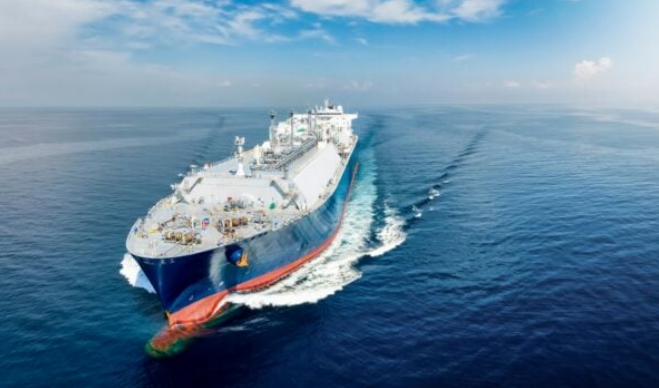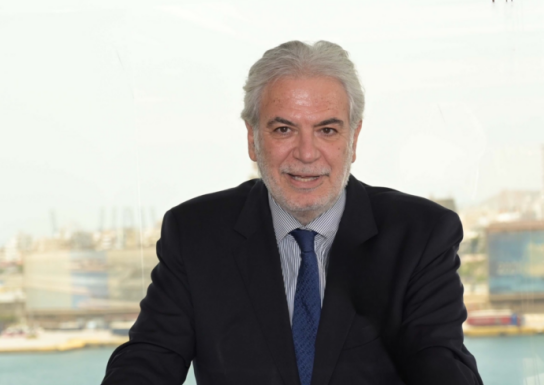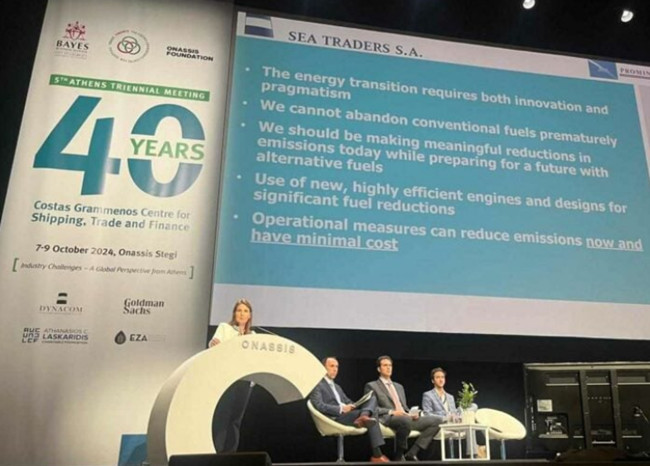LNG gains ground- the Greek shipowners' plans
By Paris Tsirigotis

The number of ships using LNG in the global fleet is increasing significantly, while Greek shipowners are emerging as "strong" players in ships under construction with this particular fuel.
Industry coalition SEALNG has revealed that more than 2,000 of the world's 60,000 largest ships will use LNG fuel by the end of 2028.
According to Veson Nautical data, Greek shipowners have ordered 52 LNG-fueled ships, worth 13.6 billion dollars.
The Greek order book corresponds to 13.5% of the capacity under construction in terms of number of ships and 14.3% in value.
The largest shipbuilding program is implemented by the Japanese, having 73 ships on order, i.e. 18.9% of the global order book.
Established in 2016 to demonstrate the benefits of the specific marine fuel across the shipping chain and involving high-profile companies, including shipping companies, ports, suppliers, tankers, infrastructure providers and manufacturers, the SEA-LNG body says that active ships with this fuel now represent more than 2% of the global shipping fleet, while if vessels on order are included, this percentage increases to 4% in number and 6% in dead weight tonnage (DWT).
From 21 ships operating on LNG in 2010, many of which were small and operating regionally, the number has grown to 590 globally, including the world's largest container ships.
With another 564 orders, the total number of ships powered by LPG by the end of 2028 will reach 1,154. Added to these are 772 LNG carriers in operation, with another 341 on order by the end of 2023.
Greek plans
Shipbrokers noted to "Naftemporiki" that the plans of the Greek shipowners include the construction of large 16,000 TEUs dual-fuel container ships with the possibility of using LNG and delivery in 2027.
According to shipping company Xclusiv, 14 LNG dual-fuel containerships have already been ordered by Greek interests CapitalExecutive Ship Management Corp, Navios Maritime Partners and Euroseas Ltd.
According to DNV, dual-fuel LNG vessels make up a third of the order book.
The fleet of LNG-powered ships in operation and on order, at 142.5 million DWT, represents 6% of the total global fleet of 2,224 million DWT.
According to SEALNG data, to support dual-fuel LNG ships there are currently available tanks in 185 ports, with another 50 to be added next year.
"It is positive that LNG is finally preferred by so many shipowners. LNG is the only practical and realistic alternative fuel option available today – even for those shipowners who may be considering other such options," SEA-LNG President Peter Keller noted.
LNG has practically zero emissions of sulfur oxides (SOx) in the fuel and leads to a reduction of up to 95% of nitrogen oxide emissions of NOx and up to 23% of emissions.
Stylianidis: We support the fleet renewal of Greek

Minister of Maritime Affairs and Insular Policy, Christos Stylianidis had successive contacts with representatives of the sector following the pre-feasibility study for the Public-Private Partnership (PPP) project "Consultant for the Pre-feasibility study for a Green Ferries PPP".
During the contacts, Stylianidis together with the representatives of the contracting companies informed the interested parties about the PPP project concerning the barren lines and in particular the study of coastal public service connections and the use of "green" ships.
"I assure you that we will practically support Greek shipping in the renewal of the fleet for the barren lines, in the context of the sustainable development of island Greece. Our goal is for Greek shipping to be a pioneer and at the same time sustainable", Mr Stylianidis said.
The road to green transition is a "marathon"

The managing director of Prominence Maritime, Ioanna Prokopiou, characterized the big issue of the green transition in shipping as a "marathon" and not a "sprint."
Addressing the 5th Athens Triennial Meeting, Prokopiou said that the green transition takes time, while at the same time it is possible to further reduce the environmental footprint of the industry by using new technologies in ships that use conventional fuels.
"Instead of waiting for the perfect solution, we can take steps towards sustainability using the tools we have today. High-performance engines using conventional fuels provide a practical, immediate way to reduce emissions and fuel consumption – without the high costs and infrastructure limitations of alternative fuels," she stated.
At the three-day conference co-organized by BAYES, "The Costas Grammenos Center for Shipping, Trade and Finance" (which celebrated its 40th anniversary) and the Onassis Foundation, Prokopiou described the "must' for the ideal new green fuel.
In particular, the ideal new fuel should:
-Have a proven long-term environmental benefit.
-Come from a sustainable energy source.
-Be available worldwide.
-Be safe to manage and use (as some of the alternative fuels discussed today are toxic and very difficult to manage).
-Have a competitive price (the price gap with traditional fossil fuels must be reduced).
-Satisfy the whole spectrum of reducing greenhouse gas emissions and not just carbon dioxide.
Otherwise we risk "hiding the emissions under the carpet and this is not the strategy we should follow," Prokopiou emphasized.
(Editor: wangsu )


